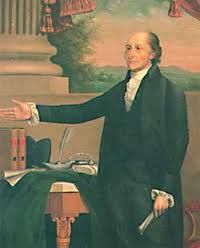“Punting the Pundits” is an Open Thread. It is a selection of editorials and opinions from around the news medium and the internet blogs. The intent is to provide a forum for your reactions and opinions, not just to the opinions presented, but to what ever you find important.
Thanks to ek hornbeck, click on the link and you can access all the past “Punting the Pundits”.
Follow us on Twitter @StarsHollowGzt
Mohammad Khatami: This time, the west must not turn its back on diplomacy
President Rouhani’s UN speech can reignite the diplomacy that over a decade ago I saw was the only path to a better world
More than at any other time in history, events in the Middle East and north Africa have taken on global significance, and there is a great shift in the importance of this region. This transformation, which began with Iran’s 1979 Islamic revolution – a surprise to many in the international community – intensified with the end of the cold war.
Today the Middle East has become a centre for new political, social and ideological forces as well as a site of collaboration and conflict with powers beyond the region. Almost all the problems facing the Middle East and north Africa today have international implications. Iran’s nuclear issue is but one of these, and certainly not the biggest; but in addressing the Middle East’s other problems, much depends on the manner in which this one is resolved.
Gary Younge: The American dream has become a burden for most
As wages stagnate and costs rise, US workers recognise the guiding ideal of this nation for the delusional myth it is
The self-proclaimed leader of the free world is turning into a low-wage economy with a class system more rigid than most and a middle class that wavers between poverty and precariousness. More than half the people using the food bank in Larimer County, Colorado, that I visited last year were working. More than one in four families in New York’s homeless shelters includes at least one working adult. In the absence of a living wage and an ethical pay structure, the work ethic, on which the American dream is founded, doesn’t work.
Congressional Republicans have gone directly from conservatism to fanaticism without any intervening period of sanity. [..]
A shutdown would be crippling. Soldiers would get IOUs instead of paychecks. Hundreds of thousands of federal employees would be furloughed without pay. National parks would close. Millions of Americans would feel the effects.
And who will get blamed?
Paul Buchheit: Add It Up: The Average American Family Pays $6,000 a Year in Subsidies to Big Business
$6,000.
That’s over and above our payments to the big companies for energy and food and housing and health care and all our tech devices. It’s $6,000 that no family would have to pay if we truly lived in a competitive but well-regulated free-market economy.
The $6,000 figure is an average, which means that low-income families are paying less. But it also means that families (households) making over $72,000 are paying more than $6,000 to the corporations. [..]
This is more than an insult. It’s a devastating attack on the livelihoods of tens of millions of American families. And Congress just lets it happen.
Richard (RJ) Eskow: Why We Should Fear – and Fight – An Entitlement-Cutting “Grand Bargain”
It’s autumn, when a politician’s fancy turns to thoughts of a Grand Bargain.
Right now it looks as if the two sides are at an impasse. But the President’s “no negotiations” posture only applies to the debt ceiling, and his budget still includes the “chained CPI” cut to Social Security. The Republicans who are attempting to force a showdown over Obamacare are still railing against the programs they call “entitlements.”
They’re all looking for a face-saving deal, and Social Security and Medicare could very well become that deal’s Ground Zero.
Dean Baker: The Media’s Complicity in Cutting Social Security and Medicare
US media outlets are disingenuously claiming that social programs are putting Americans in debt.
Most people in the United States have probably heard about the Wall Street efforts to cut Social Security and Medicare. There is a vast list of organisations such as Campaign to Fix the Debt, the Can Kicks Back, Third Way, and many more that have, as a central agenda item, cutting back or privatising Social Security and Medicare. When we hear one of these organisations tell us these programmes should be cut it is not a surprise.
The question is why do mainstream news outlets including the New York Times and Washington Post use their news sections to tell the same stories? Last week, when the Congressional Budget Office (CBO) issued new long-range budget projections, both papers were quick to ignore the numbers and to tell readers that we have to cut Social Security and Medicare.


Recent Comments